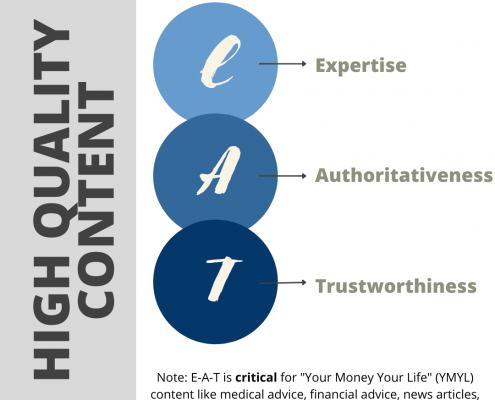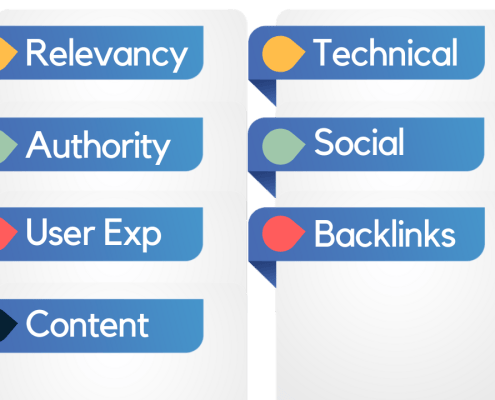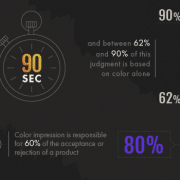Top 10 SEO Tips
10 Best SEO Tips
for Continued Online Success
Are you constantly on the hunt for the best SEO tips to help keep your website current and relevant and ensure ongoing online success?
Whether you’re rebounding from the challenges that the Covid Pandemic caused or aiming to sustain your website’s momentum, you must keep your optimization strategies current. With Google’s ongoing algorithm updates over the past three years, here are what we think are the 10 best SEO tips to help keep your website current.
1. Best Local SEO Tips – Nurturing Local Connections in the Digital Era

Update key information, service areas, products & services, photo galleries, and encourage positive reviews. In the post-pandemic world, community focus remains vital, and robust local SEO will ensure your business thrives.
Local SEO remains a critical component of a successful online strategy, especially in 2024 where the digital landscape will continue to evolve.
Local SEO involves optimizing your website to appear prominently in local search results, catering to both local businesses and products.
The significance of local search has intensified with the widespread use of smartphones and mobile devices. These devices make it imperative for businesses to fine-tune their online presence for local visibility.
The ongoing global pandemic has underscored the essential role that local businesses play in community well-being. To thrive in the aftermath of the pandemic, small businesses needed robust local support. Strengthening your local SEO is not just a marketing strategy; it’s a lifeline for community-driven enterprises.
Here’s how to fortify your local SEO efforts for the coming year:
 Optimize Your Google Business Profile (GBP)
Optimize Your Google Business Profile (GBP)
Begin by ensuring your Google Business Profile (formerly Google My Business) is finely tuned to capture local attention. Log into your Google Business Profile and update crucial information promptly. Beyond basic details, emphasize your service area, showcase your products and services, curate an engaging photo gallery, and actively manage and respond to reviews. A well-optimized GBP account is your gateway to a triple impact on your online presence:
- Increased search visibility
- Higher website and social media traffic
- And enhanced overall profitability
Embrace Hyper-Local Focus
In the post-pandemic landscape, communities are striving to rebuild and support local businesses. Tailor your local SEO strategies to resonate with this community-centric sentiment. Leverage location-based keywords and emphasize your commitment to the local area. Highlight community involvement, partnerships, and initiatives on your website and social media platforms. By aligning with local values, your business can tap into the renewed emphasis on community support.
Content Localization
Develop content that speaks directly to your local audience. Create blog posts, articles, and social media content that address local events, news, and trends. Use geographically relevant keywords to ensure your content is aligned with what your community is searching for. This not only enhances your local SEO but also fosters a sense of connection with your audience.
Online Community Engagement – Actively engage with your local community online. Participate in local forums, discussion groups, and social media communities. Respond to comments, reviews, and messages promptly. By actively participating in digital conversations, you not only boost your online presence but also strengthen your connection with the community.
Localized Link Building – Build local authority by acquiring backlinks from reputable local sources. Partner with local businesses, sponsor local events, and collaborate on community-driven projects. These localized backlinks signal to search engines that your business is a trusted and integral part of the local ecosystem.
Mobile Optimization for Local Searches – Recognize the prevalence of mobile searches, especially when users are on the go within their local communities. Ensure that your website is not only mobile-friendly but also optimized for local search intent. This includes using location-based meta tags, optimizing for voice search, and providing clear directions and contact information.
Moving forward, the synergy between digital presence and local community support is more critical than ever. By tailoring your local SEO strategy to align with community values and leveraging the latest digital trends, your business can thrive in the evolving digital landscape.
2. Best E-E-A-T SEO Tips to Build Trust

Originally introduced by Google in its 2018 algorithm update, E-E-A-T has evolved beyond the realm of medical websites to encompass a broader spectrum of online content. Understanding and optimizing for E-E-A-T is pivotal for enhancing your website’s credibility and performance in search results.
Expanded Scope Beyond Medical Content
While the E-E-A-T concept initially targeted medical websites, Google has broadened its application to include Your Money or Your Life (YMYL) sites. YMYL sites cover content related to users’ happiness, health (mental and physical), wealth, and general well-being. This expansion underscores Google’s commitment to ensuring the trustworthiness of a wide range of content impacting users’ lives.
What E-E-A-T Means Today
In essence, Google’s emphasis on E-E-A-T signifies the search engine’s dedication to presenting users with reliable, accurate, and beneficial information. Whether your content relates to health, finance, or lifestyle, Google wants to ensure that it positively influences users’ well-being. As a website owner or content creator, aligning your website with E-E-A-T principles is essential for online success.
Best Practices for E-E-A-T Optimization
Content Relevance and Accuracy – Ensure your content is not only relevant to your audience but also accurate and up to date. Regularly update information to reflect the latest industry trends and developments.
Originality and Uniqueness – Steer clear of duplicate content. Craft unique, original content that sets you apart from competitors. Google rewards fresh perspectives and unique insights.
Building Backlinks and References – Establish your website’s authority by building high-quality backlinks from reputable sources. Incorporate reference links to credible websites, demonstrating a commitment to providing well-supported information.
Authoritative Blogging – Share your expertise through authoritative blog posts. Dive deep into topics within your niche, showcasing your knowledge and authority. Well-researched and insightful content contributes to your E-E-A-T.
Guest Posting and Collaborations – Extend your reach by engaging in guest posting on reputable platforms within your industry. Collaborate with other experts to strengthen your online presence and validate your authority.
Social Media Presence – Maintain an active and relevant presence on social media platforms. Share valuable content, engage with your audience, and participate in industry discussions. A robust social media presence reinforces your overall credibility.
Good Business Practices – Beyond online content, adhere to ethical business practices. Transparent communication, excellent customer service, and a commitment to integrity will contribute to your positive brand image.
Adapting to Algorithm Changes
Stay abreast of ongoing algorithm updates and shifts in search engine priorities. Google’s algorithms are dynamic and adapting your strategies to align with the latest changes ensures sustained visibility and success.
In the ever-evolving landscape of SEO, prioritizing E-E-A-T principles is not just a recommendation but a necessity. By consistently delivering valuable, trustworthy content and aligning with industry best practices, you fortify your website’s credibility and enhance its standing in search engine results.
3. Hosting Quality & Page Speed – Elevate Your Website Performance

WEB HOSTING Concept
The online world is continually shifting so investing in high-quality hosting is paramount. Consider factors like site speed, security (HTTPS encryption), uptime, and responsive customer support. A quality host not only boosts your SEO rankings but also ensures a secure and reliable online presence.
As Google’s algorithms continue to prioritize user experience, website speed, and overall performance, investing in high-quality hosting has never been more important.
Let’s explore the key considerations and reasons why hosting quality matters in the current online environment.
Understanding Hosting Companies
A hosting company provides the infrastructure for your website by renting server space, bandwidth, and other essential computing resources. This enables you to host various elements, including websites, email services, and databases. However, not all hosting providers are created equal, and thorough research is essential to find the right fit for your specific needs.
The Pitfalls of Choosing Cheap Hosting
Just as in other aspects of life, being cheap with your website hosting can lead to a range of problems. Opting for low-cost hosting may result in sluggish site performance, frequent downtimes, and compromised security. In such a competitive online landscape, cutting corners on hosting quality can adversely impact your website’s visibility, user experience, and overall success.
The Significance of Hosting Quality
As the digital world becomes more ingrained in every aspect of life, the importance of hosting quality cannot be overstated. Your website is not just a virtual storefront; it’s a crucial extension of your brand, offering services, products, and information to a global audience.
Here’s why, along with hosting quality, page speed also matters now more than ever:
Improve Your Website’s Page Speed – The speed at which your website loads is paramount to its success, especially in the fast-paced world of online interactions. Users today expect instant gratification, and a slow-loading website can lead to frustration and abandonment. Beyond user experience, website speed is a critical factor in search engine rankings. Search engines like Google, prioritize fast-loading sites, considering them as providing a superior user experience.
In the fiercely competitive digital landscape, where every second counts, a swift and responsive website not only keeps visitors engaged but also enhances search visibility. Therefore, investing in optimizing website speed is not just a performance upgrade; it’s a strategic necessity for online success, influencing both user satisfaction and search engine rankings.
Choosing a Quality Hosting Provider – When selecting a hosting provider, consider the following:
- Reputation – Select a well-established, reputable hosting company with a track record of reliability.
- Performance Features – Ensure the hosting plan offers features like SSD storage, a robust CDN, and compatibility with your CMS.
- Uptime Guarantee – Look for hosting providers with high uptime guarantees to minimize website downtime.
- Customer Support – Look for a responsive and knowledgeable support team; this is essential for quick issue resolution.
Looking Ahead
Anticipate future needs by choosing a hosting provider that can scale with your growing online presence. Consider emerging technologies and trends to stay ahead in the dynamic digital landscape.
Remember, hosting quality is not just a technical consideration; it’s a strategic investment in your online success. Elevate your website’s performance, user experience, and SEO rankings by choosing a hosting provider with a history of continually aligning themselves with the ever-changing online environment.
4. Website Security, Uptime, and Support – Best SEO Tips

Security in the Digital Age
With the increasing prevalence of online activities, site security has become more critical than ever. Beyond safeguarding your own and your users’ data, security is now a pivotal factor influencing SEO rankings.
Key security considerations include:
HTTPS as a Ranking Factor – Google now considers Hypertext Transfer Protocol Secure (HTTPS) a key ranking factor. If you haven’t updated your website yet, you need to covert from HTTP to HTTPS sooner than later. Websites with secure, encrypted connections are prioritized in search results. The absence of the ‘S’ in HTTPS may lead to higher bounce rates, impacting your search ranking.
Trust and User Experience – The ‘S’ in HTTPS serves as an online safety assurance for users and search engines alike. It fosters trust among your audience, contributing to a positive user experience, which is closely tied to SEO success.
Hosting’s Role in Security – Quality hosting providers recognize the significance of site security. They integrate robust security measures into hosting packages to protect against threats, ensuring a secure online environment for your website.
Transition to HTTPS – If your website is not already secured with HTTPS, consider making the transition. It’s not only a best practice for security but also an essential step for maintaining and improving your search rankings.
Uptime vs Downtime – SEO Impact
Uptime, the duration your website is accessible, is a critical factor influencing both user experience and SEO performance. Consider the following:
Importance of Uptime – A reliable web hosting company ensures high uptime, typically reaching 99.9%. This reliability is crucial for user satisfaction and plays a pivotal role in SEO rankings.
SEO and Uptime Connection – Search engines, including Google, prioritize websites with minimal downtime. Consistent accessibility enhances your website’s visibility in relevant searches, positively impacting SEO rankings.
Choosing a Quality Host – When selecting a hosting provider, prioritize those with a strong commitment to uptime. A quality host ensures that your website is accessible to users and search engine crawlers, contributing to sustained SEO success.
Exceptional Support for Website Resilience
Quality hosting goes beyond infrastructure; it includes responsive and knowledgeable support. Here’s why excellent support is indispensable:
Minimizing Downtime Impact – In the event of technical issues or downtime, a reliable support team is crucial for swift issue resolution. Quick recovery minimizes the impact on your user experience and SEO rankings.
24/7 Tech Support – A hosting provider with a 24/7 tech support team ensures that assistance is available whenever issues arise. This continuous support is invaluable for maintaining a resilient online presence.
Investing in Proper Hosting – Recognize the importance of investing in proper hosting with comprehensive support. It’s an investment in the continuous availability and optimal performance of your website, directly influencing SEO outcomes.
Remember to prioritize security, uptime, and support to fortify your online presence. A secure, consistently accessible, and well-supported website not only ensures user satisfaction but also aligns with the critical criteria that search engines prioritize for SEO success.
5. In-Depth Website Content – A Guide to Google Ranking

In the ever-evolving realm of SEO, one principle stands tall – the significance of compelling, well-crafted, and in-depth website content. Move beyond the clichés, and let’s delve into why your content deserves the royal treatment for optimal Google ranking.
Here are our best SEO tips for creating engaging content.
Best SEO Tips for Quality Content
Your website’s content is not merely text on a page; it’s the crown jewel that can elevate or diminish your online presence. To wear the crown with pride, consider the following attributes:
Relevance – Content should align seamlessly with your audience’s needs and interests. Relevance is the cornerstone that captures attention and keeps visitors engaged.
Informativeness – Be a beacon of information. Your content should offer valuable insights, answering queries, and providing solutions. The more informative, the more indispensable your website becomes.
Compelling Writing – Transform your content into a compelling narrative. Engage your audience with a writing style that resonates, making the reading experience enjoyable and memorable.
In-Depth Content for SEO Triumph
Embrace the era of in-depth content where quality meets quantity for SEO supremacy. Here’s why longer content is the current SEO powerhouse:
Google’s Affinity for Depth – Google’s algorithms favor content depth. Longer pieces allow for comprehensive coverage of topics, signaling to search engines that your content is a robust resource.
Research-Backed Wisdom – Research conducted by SEO expert Brian Dean highlights a compelling trend. Analysing millions of Google search results revealed that longer content tends to secure higher rankings. What is the magic number? An average of 1,890+ words for Google’s first-page results.
User Satisfaction – In-depth content caters to user intent. Users seeking detailed information or comprehensive insights are more likely to engage with and appreciate longer-form content.
Strategic Content Implementation for SEO Success
Elevate your content strategy with strategic implementation:
Topic Clusters – Organize content around topic clusters. Create pillar pages that serve as comprehensive guides, with shorter, related articles linking to the pillar page. This strategic approach signals content authority to search engines.
Keyword Integration – Incorporate relevant keywords naturally. Focus on user intent and provide the answers users seek. Well-integrated keywords enhance your content’s discoverability.
Consistency and Frequency – Regularly publish in-depth content to showcase your industry expertise. Consistency and frequency contribute to sustained SEO success, keeping your website in Google’s spotlight.
The User Experience Advantage
Beyond SEO, in-depth content enriches the user experience:
Reduced Bounce Rates – Engaging content keeps visitors on your site longer. In-depth exploration reduces bounce rates, a metric Google considers when assessing user satisfaction.
Establishing Authority – In-depth content establishes your authority in the field. Users and search engines alike recognize your website as a go-to resource, fostering trust and credibility.
Social Sharing and Backlinks – Share-worthy content attracts organic backlinks and social shares. This not only amplifies your content’s reach but also contributes positively to your SEO profile. For more info on this topic, read this article by Backlinko.
Let your content don the crown of quality, depth, and relevance. As Google’s algorithms evolve, the reign of in-depth content continues, promising not only SEO triumphs but also a richer, more satisfying experience for your audience.
6. Best SEO Tips for Mobile SEO Excellence

In the dynamic landscape of digital connectivity, the importance of Mobile SEO remains paramount, shaping user experiences and influencing Google rankings. Contrary to the assumption that mobile relevance diminishes with less physical mobility, the truth is quite the opposite.
As we delve into the latest Mobile SEO tips, consider the evolving expectations of users and Google’s standards.
Our best SEO tips for attaining mobile excellence:
Mobile-First Mindset: Beyond Mobile-Friendly Design
The mantra for the future is not just mobile-friendly; it’s mobile-first. Recognizing the increasing prevalence of smartphone use during various moments, especially in the early hours, underscores the need for a proactive approach.
Design for Mobile, Optimize for Desktop – Start your website design with a mobile-centric perspective. Prioritize responsive design elements that enhance mobile usability. Once mobile optimization is achieved, seamlessly adapt the design for desktop users.
User-Centric Experience – Prioritize user experience on mobile devices. Streamlined navigation, fast-loading pages, and content readability on smaller screens contribute to a positive user experience, a metric Google values highly.
Responsive Design for Seamless Adaptation
Responsive design remains a cornerstone for successful Mobile SEO. Embrace practices that ensure your website seamlessly adjusts to diverse screen sizes and resolutions:
Media Queries – Implement CSS media queries to enable flexible layouts. Ensure that your website content, including images and videos, dynamically adjusts to different screen dimensions, maintaining clarity and functionality.
Touch-Friendly Navigation – Optimize navigation for touch interactions. Consider larger, well-spaced buttons and intuitive gestures to facilitate easy navigation on touchscreens, enhancing the overall mobile usability.
Page Speed – The Need for Mobile Velocity
Mobile users demand swift access to information. Prioritize page speed optimization to cater to mobile users’ expectations and satisfy Google’s performance criteria.
Optimize Images and Multimedia – Compress images and multimedia elements without compromising quality. Mobile data constraints necessitate efficient content delivery for faster loading times.
Minimize HTTP Requests – Streamline your website’s design by reducing unnecessary HTTP requests. This enhances server response times, resulting in quicker loading on mobile devices.
Mobile-Friendly Testing & Google’s Standards
Ensure your website aligns with Google’s mobile-friendly standards by employing effective testing methods.
Google’s Mobile-Friendly Test – Regularly utilize Google’s Mobile-Friendly Test to evaluate your website’s compatibility with mobile devices. Address any identified issues promptly to maintain optimal mobile performance.
Core Web Vitals – Stay attuned to Google’s Core Web Vitals, emphasizing metrics like:
- Largest Contentful Paint (LCP)
- Cumulative Layout Shift (CLS)
- And First Input Delay (FID)
Prioritize improvements to enhance overall user experience.
Voice Search Optimization – Embracing the Vocal Revolution
With the rise of voice-activated search, optimize your content for voice queries to enhance visibility in mobile search results.
Conversational Keywords – Integrate conversational keywords that align with natural language patterns. Understand how users phrase voice queries and tailor your content accordingly.
Local Voice SEO – Leverage local SEO strategies for voice search by optimizing your business information on platforms like Google Business Profile. This enhances visibility for users seeking location-specific information through voice commands.
Remember, Mobile SEO demands a strategic shift toward a mobile-first mindset. Elevate user experiences, adhere to Google’s evolving standards, and embrace innovations like voice search to stay ahead in the ever-evolving landscape of digital optimization.
7. Elevating User Experiences – Mastering UX Optimization

In the realm of SEO, user experience (UX) optimization isn’t just a nicety; it’s a necessity. Google’s expectations for user-friendly websites have intensified, with a focus on enhancing the overall page experience.
Let’s delve into the key elements that shape UX optimization and align with Google’s evolving standards. Here are our best SEO tips to help you elevate the user experience on your website.
Fundamentals of UX: Beyond First Impressions
Your website’s UX sets the tone for user interactions. Building on the essentials like fast load times, mobile-friendliness, secure hosting, and quality content, Google’s commitment to user satisfaction is exemplified through its ongoing page experience updates.
Google’s Page Experience Update: Core Metrics for Success
As mentioned, Google’s 2021-page experience update introduced crucial metrics that define the user experience. These metrics are instrumental in gauging your website’s performance:
Largest Contentful Paint (LCP)
Definition: Measures the loading time of a page from a user’s perspective.
Benchmark: An LCP below 2 seconds is considered good, while under 4 seconds needs improvement, and anything exceeding 6 seconds is categorized as poor.
Action: Prioritize optimizations to achieve a swift loading experience for users.
First Input Delay (FID)
Definition: Evaluates the time users take to interact with your page after opening it.
Benchmark: An FID under 100ms is considered good, indicating responsive user interactions.
Action: Optimize your website to ensure swift and seamless user interactions.
Cumulative Layout Shift (CLS)
Definition: Measures the visual stability of your page during loading.
Benchmark: High CLS occurs when page elements shift during loading, leading to a disruptive user experience.
Action: Enhance visual stability to minimize unexpected layout shifts.
Strategies for UX Optimization: Achieving Excellence
Elevate your website’s UX by implementing strategic optimizations aligned with Google’s expectations.
Mobile-First Design – Prioritize mobile responsiveness in your design approach. A seamless mobile experience translates to enhanced overall usability.
Media Optimization – Compress images and multimedia assets to expedite page loading without compromising quality, contributing to a positive LCP.
Interactive Content – Ensure that user interactions are smooth and responsive. Implement features that engage users promptly without delays (FID).
Stable Visuals – Minimize layout shifts during page loading. Prioritize design elements that maintain visual stability and prevent disruptions (CLS).
Continuous Monitoring and Adaptation
Regularly assess your website’s performance using tools like Google Search Console. Address any flagged issues promptly to maintain optimal UX and uphold Google’s standards.
Beyond Metrics: Holistic UX Enhancement
While Core Web Vitals offer specific benchmarks, holistic UX enhancement goes beyond metrics. Consider user feedback, conduct usability testing, and prioritize the overall satisfaction of your site visitors.
Remember, mastering UX optimization requires a strategic blend of technical enhancements and a commitment to user-centric design. By aligning with Google’s Core Web Vitals and adopting a holistic approach to user satisfaction, you’ll not only meet but exceed the evolving expectations of both users and search engines.
8. Mastering Video to Elevate Your Online Content Game

As our lives increasingly revolve around digital spaces, the impact of video content on SEO has soared. Here are our best SEO tips for video optimization to help you align with Google’s contemporary standards and expectations for video optimization.
The Surge of Video – A Dominant SEO Force
As we continue to adapt to our digital-centric existence, video content’s significance in the SEO landscape has amplified. The trend towards video optimization witnessed in 2020 persists, making it a pivotal element for online success moving forward.
Compelling Video Stats – Ignite Your Strategy
Acknowledging the power of optimized videos is crucial. Noteworthy statistics illustrate the impact of video on user engagement and search traffic.
Thumbnail Influence – Video thumbnails in search results can potentially double your search traffic, emphasizing the visual appeal and relevance of video content (Source: Econsultancy.com).
Click-Through Rates (CTR): Video search results boast a 41% higher click-through rate compared to plain text results, emphasizing the effectiveness of video in capturing user interest (Source: Tubular Insights).
Extended User Engagement: Incorporating video on your pages can lead to visitors staying 2.6 times longer, underscoring its role in enhancing the user experience (Source: Wistia).
Optimizing Videos for Success: Key Strategies
To leverage the benefits of video content for SEO, ensure meticulous optimization using these key strategies.
File Size and Upload Speed – Optimize video files to strike a balance between quality and speed, ensuring swift loading times for an enhanced user experience.
Keyword-Rich Titles – Craft titles with relevant keywords to improve discoverability in search results.
Front-Loaded Descriptions – Provide concise, compelling descriptions with clear calls-to-action (CTAs) and links at the beginning to capture user attention.
Categorization Matters – Properly categorize your videos, facilitating organized content structure for both users and search engines.
Subtitle and Close Captioning – Enhance accessibility and engagement by including accurate and meaningful subtitles and closed captions.
Continuous Adaptation: Stay Ahead of Trends
The digital landscape evolves rapidly. Stay informed about emerging video trends, platform updates, and user preferences to adapt your video strategy accordingly.
Explore Advanced Video SEO Techniques
Embrace emerging video SEO techniques, such as schema markup for videos, to provide search engines with additional context about your content.
9. Unlocking Voice Search Success to Align with Google’s Demands

In the realm of online searches, the dominance of voice commands is undeniable – more than half of all searches now unfold through the spoken word (Comscore).
The rise of voice search signifies a pivotal shift in user behavior, demanding a recalibration of our approach to optimization. It’s not just a trend; it’s a fundamental change in the way people interact with the digital landscape.
Check out our best SEO tips for improving voice search success on your website.
The Resonance of Voice Search – A Paradigm Shift
Gone are the days when search was confined to typed queries. The advent of virtual assistants and the prevalence of smartphones have ushered in a new era where voice search reigns supreme. To thrive in this auditory landscape, optimizing for voice search is not just an option; it’s a necessity.
Embracing the Query Evolution – From Statements to Questions
Voice searches are inherently interrogative, characterized by questions rather than declarative statements. Understanding and catering to this shift is key. Users interacting with Siri, Alexa, or their smartphones tend to articulate queries in natural language, resembling the way humans engage in verbal communication. This paves the way for the strategic integration of long-tail query keyword phrases, ensuring precise alignment with user intent.
Unleashing the Power of Human-Centric Optimization
The essence of voice search optimization lies in mimicking the natural cadence of human conversation. This simple yet powerful SEO tip revolves around aligning your content with how people think and speak. Picture it as a conversation with a friend – an intuitive and relatable exchange that mirrors the genuine human experience.
Navigating the Voice Search Landscape – Implementation Made Simple
Implementing voice search optimization is a straightforward process.
Natural Language Integration – Craft your content in a way that mirrors conversational language, facilitating a seamless match with user queries.
Question-Driven Content – Anticipate user questions and provide direct, concise answers within your content, optimizing for common voice search inquiries.
Long-Tail Keywords – Infuse your content with long-tail keywords that capture the specificity of user queries, increasing the likelihood of appearing in relevant voice search results.
Google’s Imperative – Adapt to Voice or Risk Irrelevance
As the digital ecosystem undergoes continuous transformation, Google places increasing importance on delivering results that align with user behavior. Embracing voice search optimization is not just a strategic move; it’s an imperative dictated by the evolving expectations of search engine algorithms.
By embracing the nuances of human conversation and tailoring your content accordingly, you position yourself not only for SEO success but also for resonance in the age of voice-driven exploration.
10. Harnessing Schema Markup for Featured Snippets

While the term “schema markup” may seem daunting, its integration is pivotal for standing out in the bustling realm of online content. So, let’s demystify Schema Markup, delve into its intricacies, and explore how it can catapult your content to prime real estate on Google’s search results – the coveted Featured Snippets.
Here are our best SEO tips for harnessing schema markup.
Decoding Schema Markup – A Semantic Boost for Visibility
At its core, Schema Markup is a semantic vocabulary, a set of tags (often referred to as microdata) seamlessly woven into your website’s HTML code. Far from being an enigma, this structured data performs a dual role.
- It not only empowers search engines like Google to comprehend the nuances of your content,
- But it also transforms search results into more informative snippets, enhancing the user experience.
Empowering Search Engines & Enhancing User Experience
Schema Markup serves as a digital Rosetta Stone, deciphering the contextual tapestry of your web pages for search engines. By incorporating these structured data tags, you provide search algorithms with a roadmap to navigate and understand your content comprehensively. The result? Your content is not only indexed more accurately but also stands a higher chance of being featured prominently in relevant search queries.
Strategic Optimization for Rich Snippets – A Page 1 Power Play
Now, let’s unravel the golden thread connecting Schema Markup to the sought-after Featured Snippets. Rich snippets, displayed prominently on the first page of Google’s search results, act as virtual ambassadors for your content. These morsels of information are not merely informative; they serve as a compelling preview, enticing users to explore further.
The Impact of Featured Snippets – Elevating Your SEO Game
Why should you care about optimizing for featured snippets? The benefits are manifold.
Enhanced Visibility – Securing a spot in the featured snippets elevates your content to prime real estate on search engine results pages (SERPs), ensuring maximum visibility.
Increased Click-Through Rates (CTR) – Featured snippets provide users with a snippet of information directly on the SERP, prompting higher CTR as users are enticed to delve deeper into your content.
Improved Search Experience – By presenting concise yet valuable information upfront, featured snippets enhance the overall search experience for users, establishing your content as a go-to source.
SEO Traffic Boost – The ripple effect of featured snippets goes beyond CTR; it significantly augments your overall SEO traffic, propelling your site towards the apex of search rankings.
Strategic Schema Implementation – Your Pathway to Featured Snippet Glory
Identify Targeted Snippet Opportunities – Conduct thorough keyword research to discern queries where featured snippets are prevalent.
Implement Relevant Schema Markup – Choose and integrate Schema Markup that aligns with the content you want to optimize for snippets.
Craft Concise and Informative Content – Tailor your content to provide succinct yet comprehensive answers to commonly asked questions.
Test and Refine – Periodically assess the performance of your Schema Markup and refine it based on emerging search patterns.
Remember, bBy optimizing for featured snippets through meticulous Schema implementation, you not only enhance the discoverability of your content but also establish your website as an authoritative source in your niche. So, embrace Schema Markup, unravel the potential of rich snippets, and watch your content claim its rightful place on page 1 of Google’s search results.
Pivot to Online Everything – Recap of Best SEO Tips
If you haven’t already, it may be time to pivot your business, and offerings, to an online everything model. There is some part of your business that can work harder for you, and your customers online, whether it’s:
- E-commerce
- Online ordering
- Online consultation
- Online support
- Online courses
- Online teaching
- Online contact forms, chat, downloads, information
Essentially, “online everything” is becoming the norm in the ever-evolving landscape of digital supremacy. Understanding the intricacies of Search Engine Optimization (SEO) is pivotal for claiming the throne of top rankings on Google.
Let’s embark on a journey through the current SEO terrain and recap the best SEO tips and key components essential for your website’s online success.
Local SEO Mastery – Dominating the Microcosm
Embrace your Google Business Profile – Optimize your GBP account with accurate business information, service areas, detailed product listings, captivating photo galleries, and genuine customer reviews.
Community Connection – In a post-pandemic world, fostering local support is paramount. Strengthen your local SEO to resonate within your community, ensuring your business is easily discoverable and cherished.
E-E-A-T Framework: Expertise, Authoritativeness, Trustworthiness
Quality Assurance: Uphold the E-E-A-T principles—Expertise, Authoritativeness, Trustworthiness—in your content. Demonstrate credibility through backlinks, authoritative blogs, and a strong social media presence.
Content is Still King – The In-Depth Odyssey
Quality Over Quantity – Craft content that reigns supreme—relevant, informative, compelling, and in-depth. Long-form content is a contemporary SEO champion, with Google favoring pieces that average around 1,890 words.
Schema Markup Magic – Infuse Schema Markup strategically to enhance search engine understanding and increase the likelihood of being featured in rich snippets.
Mobile-First Mandate – Designing for the On-the-Go World
Beyond Mobile-Friendly – Think mobile-first. Prioritize mobile optimization, ensuring seamless design and functionality, and subsequently adapting it for desktop use.
UX Perfection – Google’s page experience update underscores the importance of User Experience (UX). Core Web Vitals such as Largest Contentful Paint (LCP), First Input Delay (FID), and Cumulative Layout Shift (CLS) now play pivotal roles in determining rankings.
Hosting, Security & Speed – Essential Pillars
Quality Hosting Services – Every second counts. Great hosting can ensure a swift and responsive website that positively influences both user satisfaction and search engine rankings.
HTTPS Imperative – Security is non-negotiable. Embrace HTTPS to encrypt your site and signal trustworthiness to users and Google, impacting both your security and search rankings.
Need for Speed – Page load speed is a critical factor influencing SEO rankings. Opt for quality hosting, leveraging factors like hard drive technology, Content Delivery Networks (CDN), and CMS optimization.
Voice Search Revolution – Optimizing for the Spoken Word
Embrace Natural Language – Optimize your content for voice search by mirroring the way humans think and talk. Focus on long-tail queries and conversational language to align with user search behavior.
Video SEO Ascendancy – Visual Storytelling for Success
Video Optimization – Leverage the rising trend of video by optimizing your content. Ensure videos are appropriately sized, load quickly, have keyword-rich titles, compelling descriptions, and useful subtitles.
Schema for Snippet Supremacy – Structured Data Magic
Schema Markup – Master the art of Schema Markup to provide search engines with a contextual roadmap of your content. Optimize for rich snippets, securing prime real estate on Google’s first page.
Would You Like More SEO Tips?
Do you need some help with any of the SEO tips we offered? We’ve got your back, and we can do it all from a perfectly acceptable social distance (i.e., remotely). Contact our SEO Experts by calling toll-free 1-888-262-6687 or contact us online.



 Optimize Your Google Business Profile (GBP)
Optimize Your Google Business Profile (GBP)




